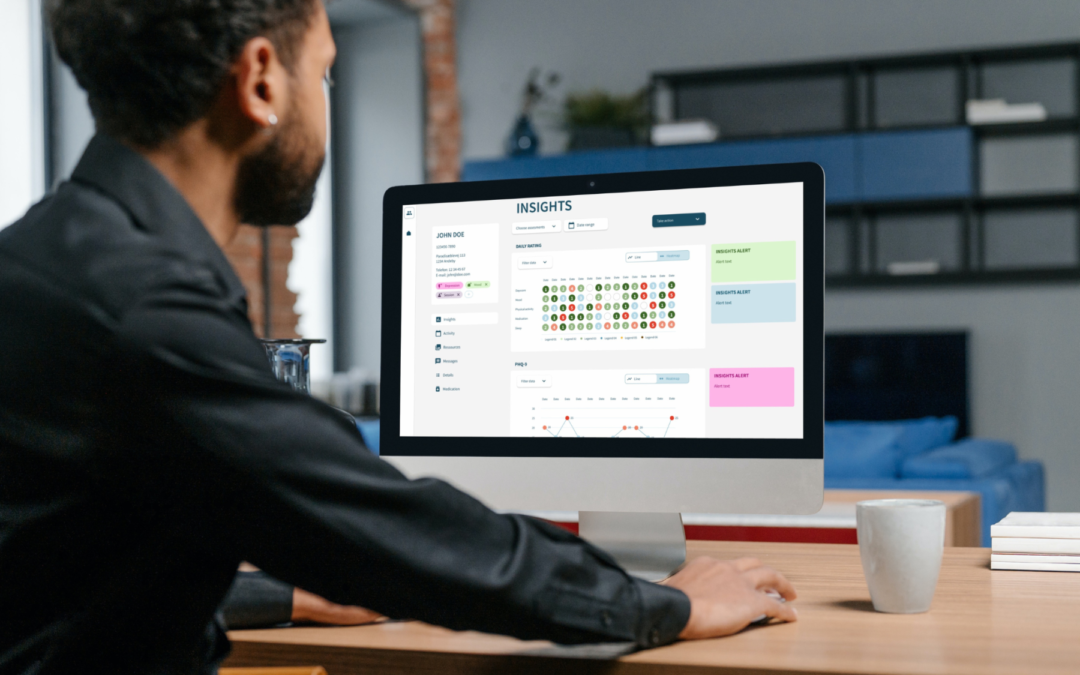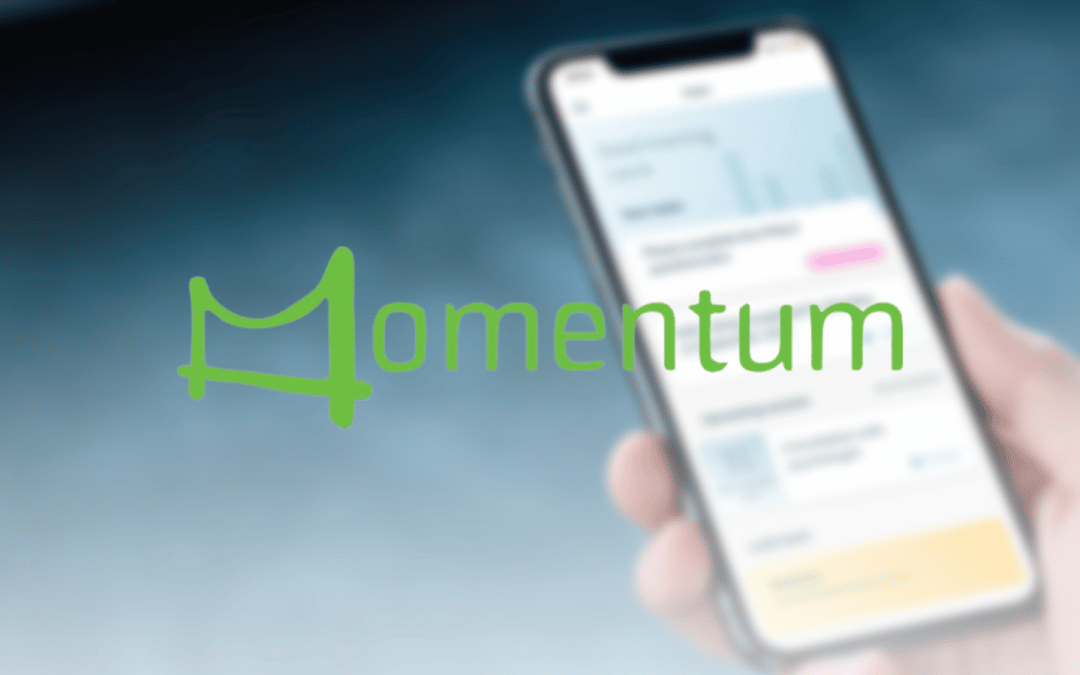
Monsenso participates in new project to investigate what works best for patients with depression after discharge from psychiatric treatment
Depression is more common than one might think. In Denmark, it is estimated that between 7-12% of men and 15-25% of women suffer from depression at least once in their lifetime [1], which means that approximately 150.000 Danes live with moderate to severe depression at any given time [2]. But how do patients who have received psychiatric treatment for depression experience the sector-transition into the primary sector? And what are their needs for treatment and care from different healthcare sectors? The DEPRIC research project is now trying to find answers and thereby develop a new treatment model for depression across healthcare sectors in Denmark.
The transitional phase from inpatient wards into the primary sector can represent a vulnerable period for patients suffering from depression [3,4], with “high risks of relapse and readmission” [5] . The research project DEPRIC thus aims to establish a new treatment model for depression across the healthcare sectors in Denmark. The project is led by PhD student Anne Sofie Mosborg Aggestrup from the Mental Health Services in the Capital Region of Denmark. The DEPRIC project began in October 2021, and the project now offers patients who have completed a treatment course for severe depression at an affective disorders outpatient unit at the Mental Health Centre Copenhagen to participate in this cross-sectoral study by self-reporting data in an application (app) [6].
Throughout the research project so far, interviews, focus groups, and a group interview have been conducted with participating patients, healthcare professionals, and job consultants across sectors. In addition, the project will conduct workshops during the autumn of 2023. Currently, patients will be provided with the Monsenso digital health solution, an app that will allow them to register relevant data throughout the research project. This self-reported patient data will entail, for instance, data on the patients’ mood, sleep patterns, mental well-being, use of medication, connections to the labour market, and on why and how often they have approached specialist groups after their treatment course in the psychiatry [6].
It is anticipated that patients will begin their app registrations at the end of February 2023, and will then register every second week for a period of six months. The researchers behind the DEPRIC project aim to establish a more coherent patient course by involving patients, healthcare professionals, and job consultants in developing a new treatment model across healthcare sectors in Denmark. The researchers hypothesize that this will promote patients’ recovery process from depression, and reduce relapses of depression and psychiatric hospitalizations after the patients’ discharge from outpatient psychiatric treatment.
“Our aim is to help provide better health with better data. We are looking forward to contributing to this project and helping patients with mental illness transition across sectors more seamlessly for a better patient experience and higher quality of life”, says Thomas Lethenborg, CEO at Monsenso.
“The self-registrations in the app will help us to identify factors and parameters to support patients on their pathway into the primary healthcare sector. Together with interviews, focus groups, group interviews, and workshops, the data in the app will help to develop a new treatment model that aims to prevent relapse of depression”, says Anne Sofie Mosborg Aggestrup, PhD student at the University of Copenhagen.
——————————————————————————————————————————-
About Monsenso
Monsenso is an innovative technology company offering a digital health solution used for decentralised trials, remote patient monitoring and treatment support. Our mission is to contribute to improved health for more people at lower costs by supporting treatment digitally and leveraging patient-reported outcomes data. Our solution helps optimise the treatment and gives a detailed overview of an individual’s health through the collection of outcome, adherence, and behavioural data. It connects individuals, carers, and health care providers to enable personalised treatment, remote care, and early intervention. We collaborate with health and social care, pharmaceuticals, and leading researcher worldwide in our endeavours to deliver solutions that fit into the life of patients and health care professionals. To learn more visit www.monsenso.com.
References:
[1] Kessing, L.V. (2021). Depression, forekomst. Sundhed.dk.
https://www.sundhed.dk/borger/patienthaandbogen/psyke/sygdomme/depression/depression-forekomst/#:~:text=Depression%20er%20hyppig.,de%20lettere%20og%20moderate%20depressioner.
[2] Videbech, P., & Deleuran, A. (). The Danish Depression Database. Clinical Epidemiology, 8, 475–478.
https://www.ncbi.nlm.nih.gov/pmc/articles/PMC5098510/
[3] Dunker Svendsen, S., Aggestrup, A.S., Nørregaard, L.B., Løventoft, P., Præstegaard, A., Danilenko, K.V., Frost, M., Knorr, U., Hageman, I., Vedel Kessing, L. & Martiny, K. (2019). Circadian reinforcement therapy in combination with electronic self-monitoring to facilitate a safe post-discharge period of patients with depression by stabilizing sleep: protocol of a randomized controlled trial. BMC Psychiatry, 19, 124. https://doi.org/10.1186/s12888-019-2101-z
[4] Tønning, M.L., Faurholt-Jepsen, M., Frost, M., Martiny, K., Tuxen, N., Rosenberg, N., Busk, J., Winther, O., Melbye, S.A., Thaysen-Petersen, D., Aamund, K.A., Tolderlund, L., Bardram, J.E. & Kessing, L.V. (2021). The effect of smartphone-based monitoring and treatment on the rate and duration of psychiatric readmission in patients with unipolar depressive disorder: The RADMIS randomized controlled trial. Journal of Affective Disorders, 282, 354-363. https://pubmed.ncbi.nlm.nih.gov/33421863/
[5] Lauritsen, L., Andersen, L., Olsson, E., Søndergaard, S.R., Nørregaard, L.B., Løventoft, P.K., Svendsen, S.D., Frøkjær, E., Jensen, H.M., Hageman, I., Kessing, L.V. & Martiny, K. (2017). Usability, Acceptability, and Adherence to an Electronic Self-Monitoring System in Patients With Major Depression Discharged From Inpatient Wards. Journal of Medical Internet Research,19(4), e123. https://pubmed.ncbi.nlm.nih.gov/28432040/
[6] Madsen, M.B. (2023). Forskere vil forbedre overgange i behandling til mennesker med depression gennem en brugerinddragende indsats. Region Hovestandens Psykiatri.
https://www.psykiatri-regionh.dk/presse-og-nyt/Nyheder-og-pressemeddelelser/Sider/forskningsprojektet-depric.aspx





